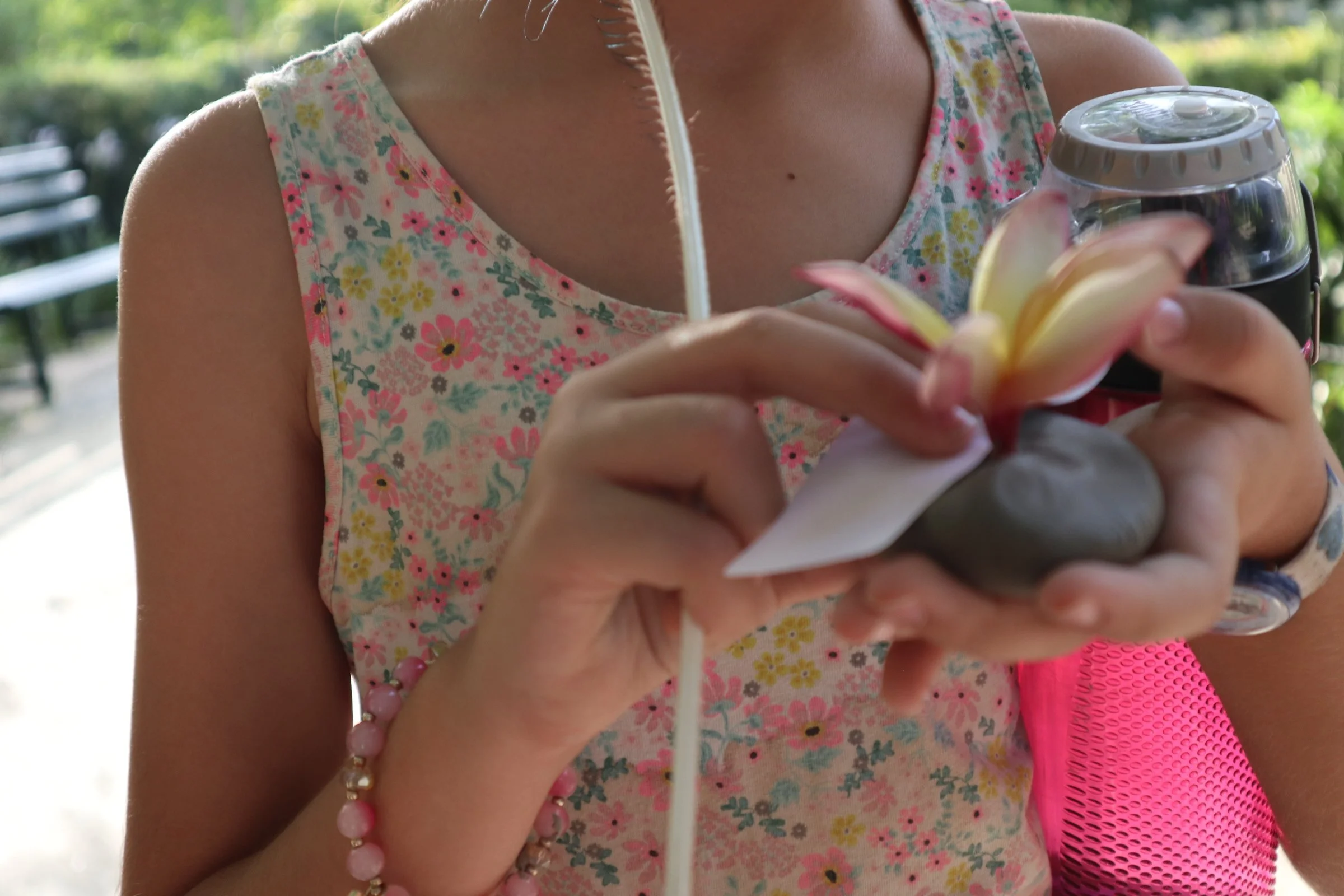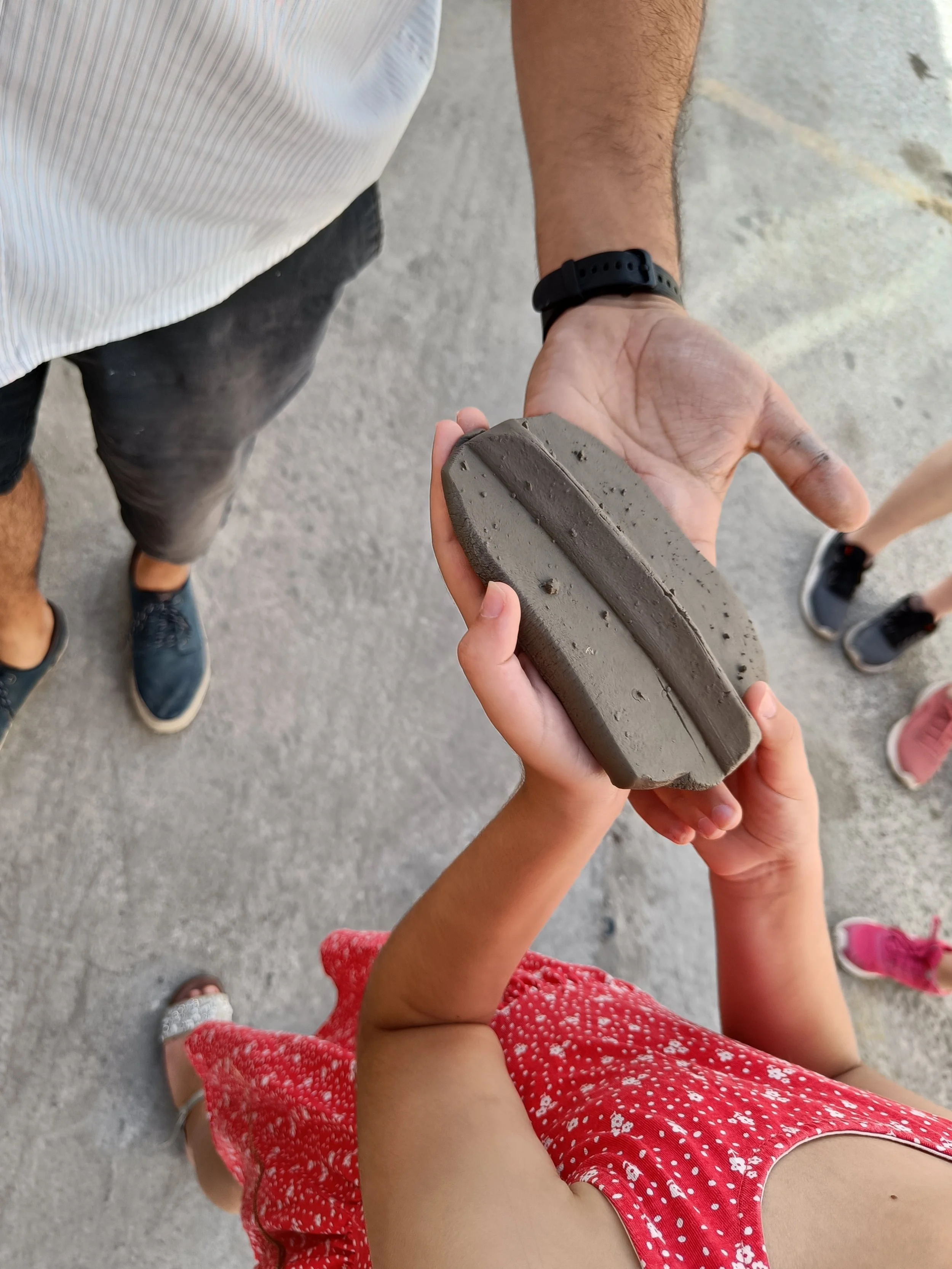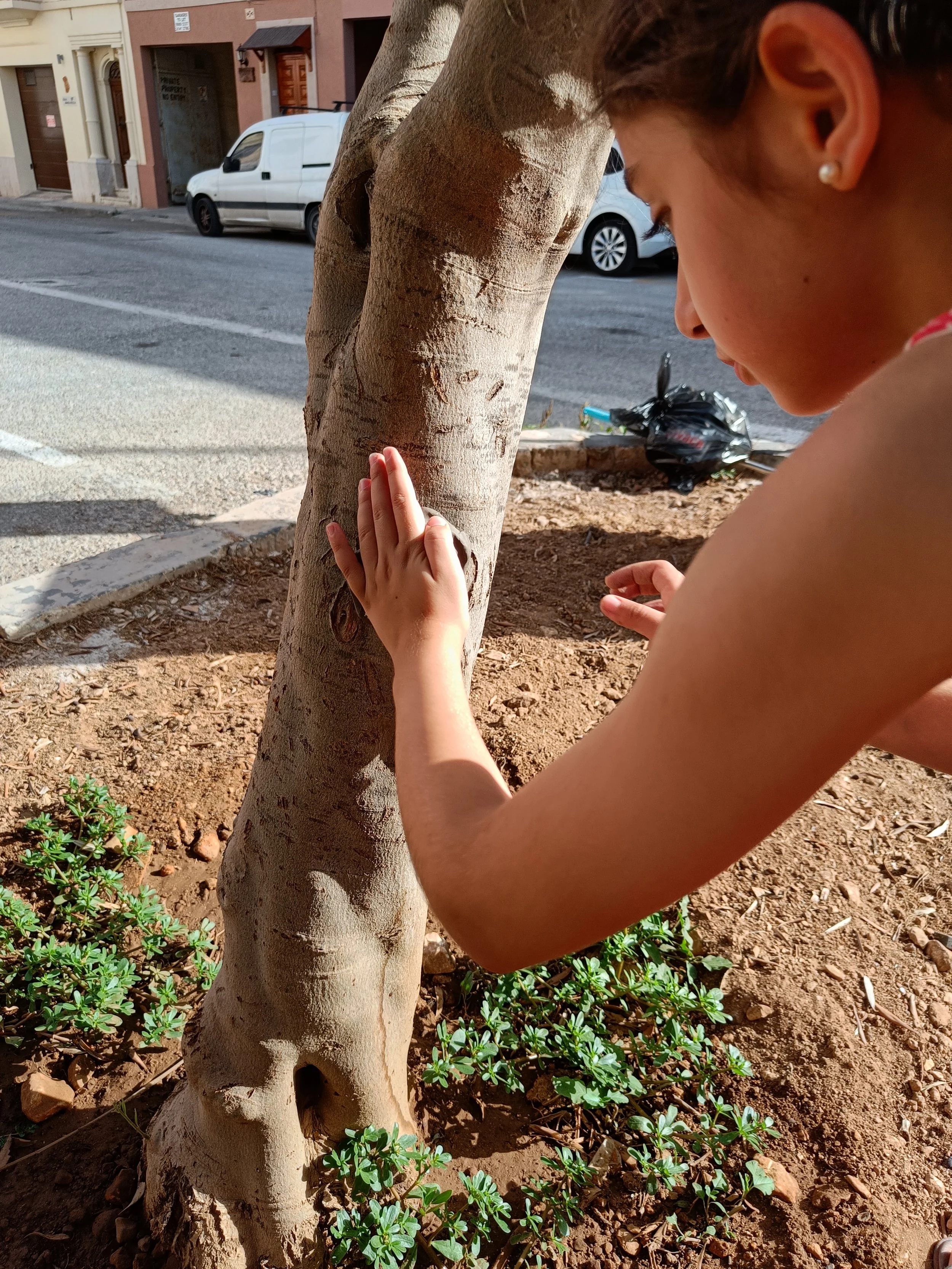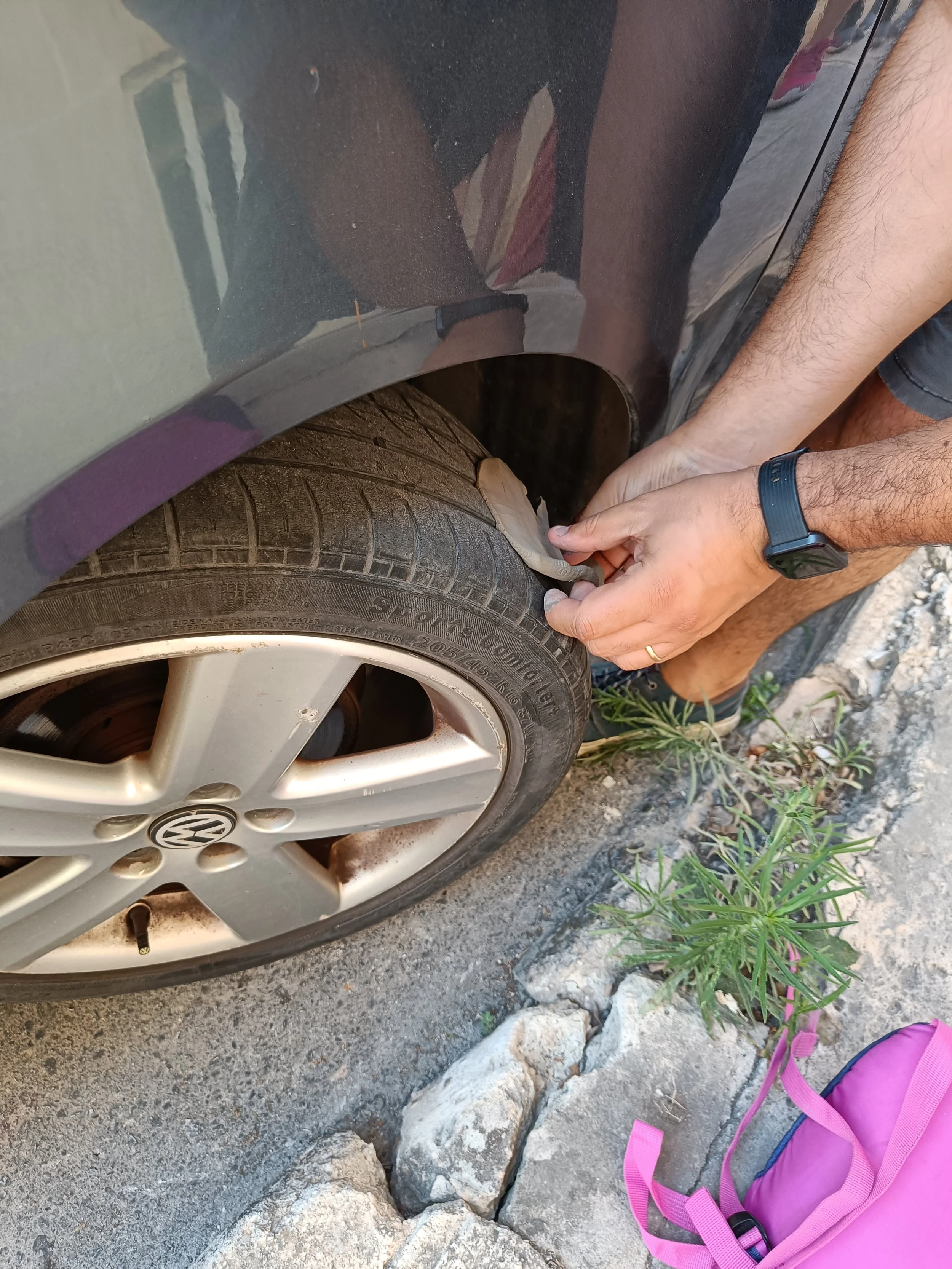Walking uncharted territory - A collective exploration of public space - Raffaella Zammit
Photos by Raffaella Zammit
The ability to move freely and safely is undoubtedly a vital function and fundamental right, that opens up opportunities, connections and explorations with our situatedness, opening our physical and cognitive horizons and capabilities. However, whether one moves or stays stationary intersects with the personal and the political, a realm of multiscalar, multitemporal and multispatial transformations and tensions.
Between July and October 2023, a group of parents and children met me regularly at and around The Mill - Art, Culture and Crafts Centre, Birkirkara, Malta. We walked, reflected and created. Walking with clay, we explored safety and playfulness, and how the participants perceived, conceived and lived public space as pedestrians. Exploring spaces through our senses reframed some of the participants' perspectives about walking itself, injecting a newfound sense of discovery. The addition of clay as a documentary and affective material gave the group a tool for capturing ephemeral moments and situations into objects for reflection. Fun, boredom, heat, time, power fueled our reflections and imaginations. How do we experience public space? Is it a physical space we use to move from one place to the next, or does it hold deeper connections? Why is relational infrastructure important as much as physical pedestrian infrastructure?
This exploration of public space resonated with Lefebvre’s concept of the production of space and right to the city and emerging concepts of mobility justice. Walking Uncharted Territory opened up our understanding of different relationalities, and how these fluctuate in everyday life. The research process revealed how dis/connections between the self, the group, the surroundings, and power structures, exposed how mobility is entangled and a deeper understanding is necessary, not only of individual needs but also of relational assemblages, such as the parent-child assemblage. The group's reflections pointed towards the concept that pedestrian networks consist of relational infrastructure that contain tensions, power relations and urban care, which offers a more nuanced understanding of the pedestrian experience.
This research project formed part of Raffaella’s postgraduate studies leading to M.A. Social Practice Art and Critical Education (Melit.).
More information about Raffaella Zammit’s projects here.




